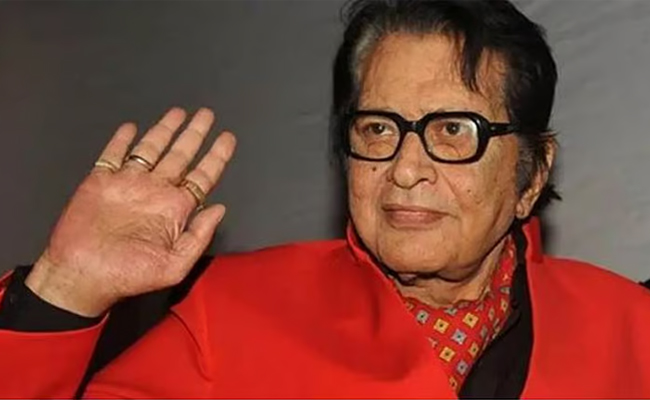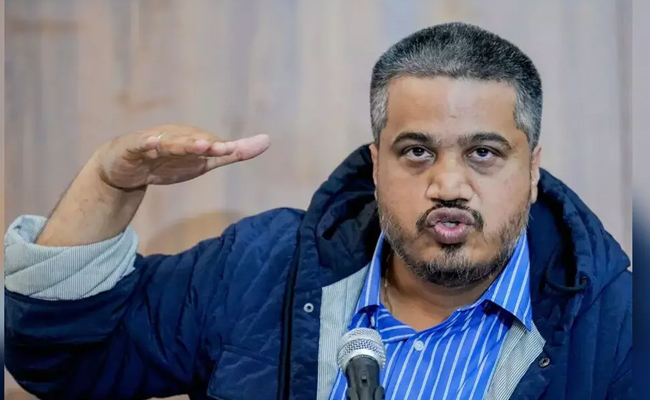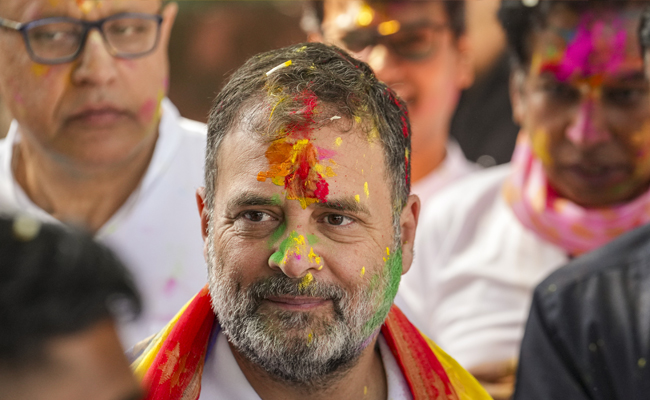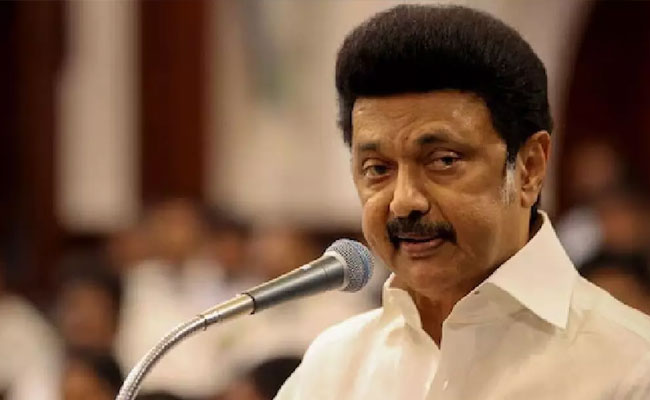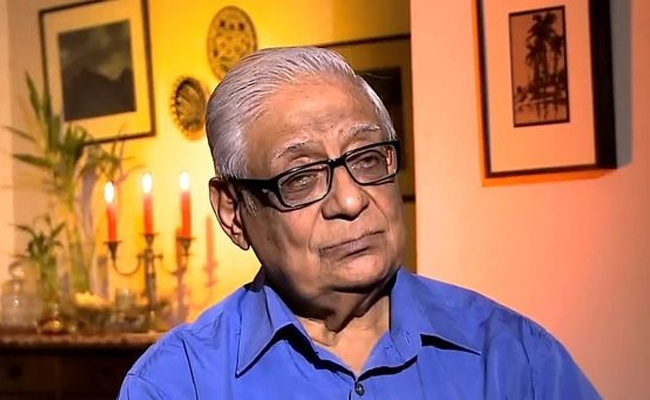Mumbai (PTI): Veteran actor-filmmaker Manoj Kumar, who came to be known as 'Bharat Kumar' for his series of patriotic films such as "Shaheed", "Upkar" and "Purab Aur Paschim", died in a Mumbai hospital early Friday. He was 87.
The industry veteran, whose films ruled the box office in the late 1960s and 1970s, had been ailing for a while and died of age related issues at the Kokilaben Ambani Hospital around 3.30 am, family friend and filmmaker Ashoke Pandit told PTI.
"He had been hospitalized for the past few weeks," Dr Santosh Shetty, CEO and executive director of the hospital, said in a statement.
"He is out of his misery now," the filmmaker's son Kunal told PTI, adding that his father had been battling multiple health issues and was bedridden for the last few years.
Kumar had been in and out of hospital and was most recently admitted for pneumonia, he said.
Prime Minister Narendra Modi remembered him as an "icon of Indian cinema".
"Deeply saddened by the passing of legendary actor and filmmaker Shri Manoj Kumar Ji. He was an icon of Indian cinema, who was particularly remembered for his patriotic zeal, which was also reflected in his films. Manoj Ji's works ignited a spirit of national pride and will continue to inspire generations. My thoughts are with his family and admirers in this hour of grief. Om Shanti," the prime minister wrote on X.
Kumar, a Dadasaheb Phalke winner, was also known for hits such as "Do Badan", "Haryali Aur Rasta" and "Gumnam".
Born Harikrishan Goswami into a Punjabi Hindu family in Abbotabad town (Pakistan) in the undivided India, Kumar's family migrated to Delhi and he completed his graduation from Hindu College before shifting to Mumbai to pursue a career in movies.
In an interview with PTI in 2021, Kumar recalled that he fell in love with Dilip Kumar's performance in "Shabnam" and decided to rechristen himself Manoj, his idol's name in the movie.
"I remember the time when I went to watch Dilip Kumar sahib in 'Shabnam' which was released in 1949. It is because of him that I became a fan of cinema. I fell in love with his character in the film whose name was Manoj. I must be 11 years old then but I instantly decided that if and whenever I become an actor I will keep my name as Manoj Kumar," he said.
Years after that, Dilip Kumar agreed to play a role in his filn "Kranti" and the filmmaker said he was overjoyed.
Kumar's first major success was Vijay Bhatt's "Hariyali Aur Rasta" in 1962 opposite Mala Sinha and then the thriller "Woh Kaun Thi?", which came to be known for its hit songs such as "Lag jaa gale".
In 1965, he released "Shaheed", a film on the life of Bhagat Singh. It was a major success and was even noticed by then prime minister Lal Bahadur Shashtri.
A conversation with Shastri inspired Kumar to explore a story on the PM's popular slogan "Jai Jawan, Jai Kisan". And thus was born "Upkar", his directorial debut.
The movie was a blockbuster and its song "Mere desh ki dharti" is still a favourite with music lovers on Independence Day and Republic Day.
In between his patriotic films, Kumar played the romantic lead in films such as "Himalay Ki God Mein", "Do Badan", "Sawan Ki Ghata" and thriller "Gumnaam".
In 1970, he made "Purab Aur Paschim" on the themes of cultural differences between the East and West, another major success of his career.
He came to be known as "Bharat Kumar" for his love for patriotic and socially conscious movies, a theme that he further explored in "Roti Kapda Aur Makaan" and Kranti".
Let the Truth be known. If you read VB and like VB, please be a VB Supporter and Help us deliver the Truth to one and all.
Mumbai (PTI): NCP (SP) MLA Rohit Pawar on Wednesday alleged that someone was trying to save VSR Ventures in connection with the plane crash that killed Maharashtra deputy chief minister Ajit Pawar, and claimed that the AAIB preliminary probe vindicated the doubts earlier raised by him.
He also accused VSR company of indulging in several grave lapses in the past.
The Learjet 45 aircraft, operated by VSR Ventures, crashed near the Baramati air strip in Pune district on January 28, killing Pawar and four others.
In its 22-page preliminary report on the VSR Venture's Learjet plane crash, the Aircraft Accident Investigation Bureau (AAIB) said the visibility at the time of the crash was below the required level. It also flagged about fading marks on the runway and presence of loose gravels on the runway surface.
Pawar said, "I am not against VSR or the Directorate General of Civil Aviation (DGCA). Ajitdada was travelling in a VSR aircraft. Unless we go into the depth of every aspect, we will not know the truth. But someone is trying to save this company. The doubts we had raised have been proven correct in the inquiry report."
He also claimed that the AAIB report contained discrepancies, including mentioning Baramati as a district, and questioned how seriously the probe had been conducted.
Pawar, who has been regularly holding press conferences to raise issues concerning the Baramati plane crash, also contested the report's conclusion that the aircraft hit trees before crashing.
"The report says the aircraft struck trees and then fell. But there are no trees at that spot. There is only a small bush which the aircraft did not even touch. What is stated in the report about hitting trees is incorrect," he said.
Pawar further alleged that VSR Ventures had displayed irresponsibility on multiple occasions, citing an incident involving the then chief minister Eknath Shinde's Davos visit on January 20, 2023.
He claimed that the aircraft carrying Shinde had entered Iranian and Iraqi airspace without overflight permission, following which fighter jets from the two countries allegedly warned of action, forcing a change in route from Bahrain to Zurich.
"There have been several such grave lapses by VSR," he said.
Pawar demanded to know from where VSR Ventures derived its "audacity", and sought details about its investors and officials, though he added that he was not personally concerned with who they were.
Drawing a comparison, he said the Central Bureau of Investigation (CBI) had taken over the probe into actor Sushant Singh Rajput's death within two days, whereas a month had passed since the Baramati crash without a similar action.
He claimed that VSR Ventures had two directors and three shareholders, and that there were eight common names across two related companies.
He further alleged that the owner of VSR was related to the Union Civil Aviation Minister and questioned why the company, though registered in Delhi, had made high-value investments in Jubilee Hills (upscale area in Hyderabad) at rates allegedly Rs 17 crore above the market price.
The MLA representing the Karjat-Jamkhed assembly constituency in Ahilyanagar district also raised concerns about the legal and institutional framework of the AAIB under the 2017 rules, claiming it was neither a statutory nor an autonomous body and remained answerable to the secretary and the minister, besides being attached to the DGCA.
"There is no independent investigative agency," he alleged.

